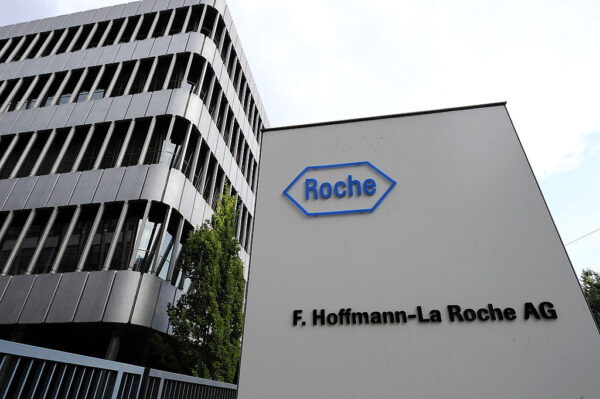
Cardiometabolic disease isn’t a big part of Roche’s drug portfolio or pipeline, but the pharmaceutical giant is trying to change that with a deal to share in the development of an experimental Alnylam Pharmaceuticals hypertension drug that could offer patients efficacy and dosing advantages.
According to deal terms announced Monday, Roche is paying $310 million for outside-of-the-U.S. rights to the drug, zilebesiran. The companies will share in the development of the RNA therapy for hypertension. Roche has the opportunity to lead future development of the drug for other indications.

With the Rise of AI, What IP Disputes in Healthcare Are Likely to Emerge?
Munck Wilson Mandala Partner Greg Howison shared his perspective on some of the legal ramifications around AI, IP, connected devices and the data they generate, in response to emailed questions.
Cambridge, Massachusetts-based Alnylam is a pioneer among companies developing therapies that leverage RNA interference, a pathway in cells that stops protein translation. Sometimes referred to as “gene silencing,” this approach employs small pieces of RNA to stop the production of a disease-causing protein.
Zilebesiran is intended to block production of angiotensinogen in the liver. This protein is upstream in a protein cascade that plays a role in blood pressure regulation. Hypertension drugs that address the downstream protein angiotensin are already available as small molecules dosed as once-daily pills. Zilebesiran is a small interfering RNA molecule formulated as an injection that lasts up to six months.
Alnylam has advanced zilebesiran to Phase 2 testing. The Roche deal follows publication of Phase 1 data last week in the New England Journal of Medicine. Results of the dose-ascending study showed dose-dependent decreases in levels of angiotensinogen in the blood. The drug also resulted in lowering of blood pressure that was sustained for up to 24 weeks. No serious adverse events were reported and the most common side effect was mild injection-site reactions.
There are already many drugs available for the more than 1.2 billion adults who have hypertension. However, many patients are unable to adequately manage their high blood pressure with those medications, putting them at higher risk of developing more cardiovascular problems. Two Phase 2 tests of zilebesiran are enrolling patients whose hypertension is inadequately controlled by standard of care drugs. The study evaluating the drug as a monotherapy is expected to post preliminary data later this year. A second Phase 2 trial is testing the drug in combination with standard hypertension medications. Preliminary data are expected in early 2024.
The size of the hypertension market and the fact that so many patients are inadequately served by currently available medications makes the indication attractive for drug research efforts. Mineralys Therapeutics is developing a small molecule that takes a different approach than other oral hypertension drugs. In February, the Radnor, Pennsylvania-based biotech raised $192 million in IPO cash to continue clinical testing of this hypertension drug, lorundrostat. AstraZeneca joined the pursuit for new hypertension drugs with a $1.3 billion acquisition CinCor Pharma early this year. The CinCor drug, baxdrostat, is also a once-daily oral small molecule.
Alnylam won the first ever RNAi drug approval in 2018 for Onpattro, a therapy that treats nerve pain caused by the rare disease hereditary transthyretin amyloidosis. While Alnylam has since won additional approvals in rare diseases, bringing RNAi to more prevalent conditions is a key part of the drugmaker’s growth strategy.
Under Alnylam’s deal with Roche, the biotech will continue to lead development of zilebesiran for the first indication. Funding of the program will be split 40% to Alnylam and 60% to Roche. Regulatory and commercial milestones payments could bring Alnylam’s total payout to up to $2.8 billion. According to deal terms, Alnylam will share equally in the profits and losses from sales of the drug in the U.S. The biotech will receive royalties from Roche’s sales of the drug in all other markets.
“With this collaboration, we now can develop zilebesiran in a more robust way, allowing us to have cardiovascular outcomes data in hand at launch to ensure results relevant not only for health authorities but also for access and clinical practice in order to ultimately reach as many patients as possible,” Alnylam CEO Yvonne Greenstreet said in a prepared statement.
Photo: Giuseppe Aresu/Bloomberg, via Getty Images














